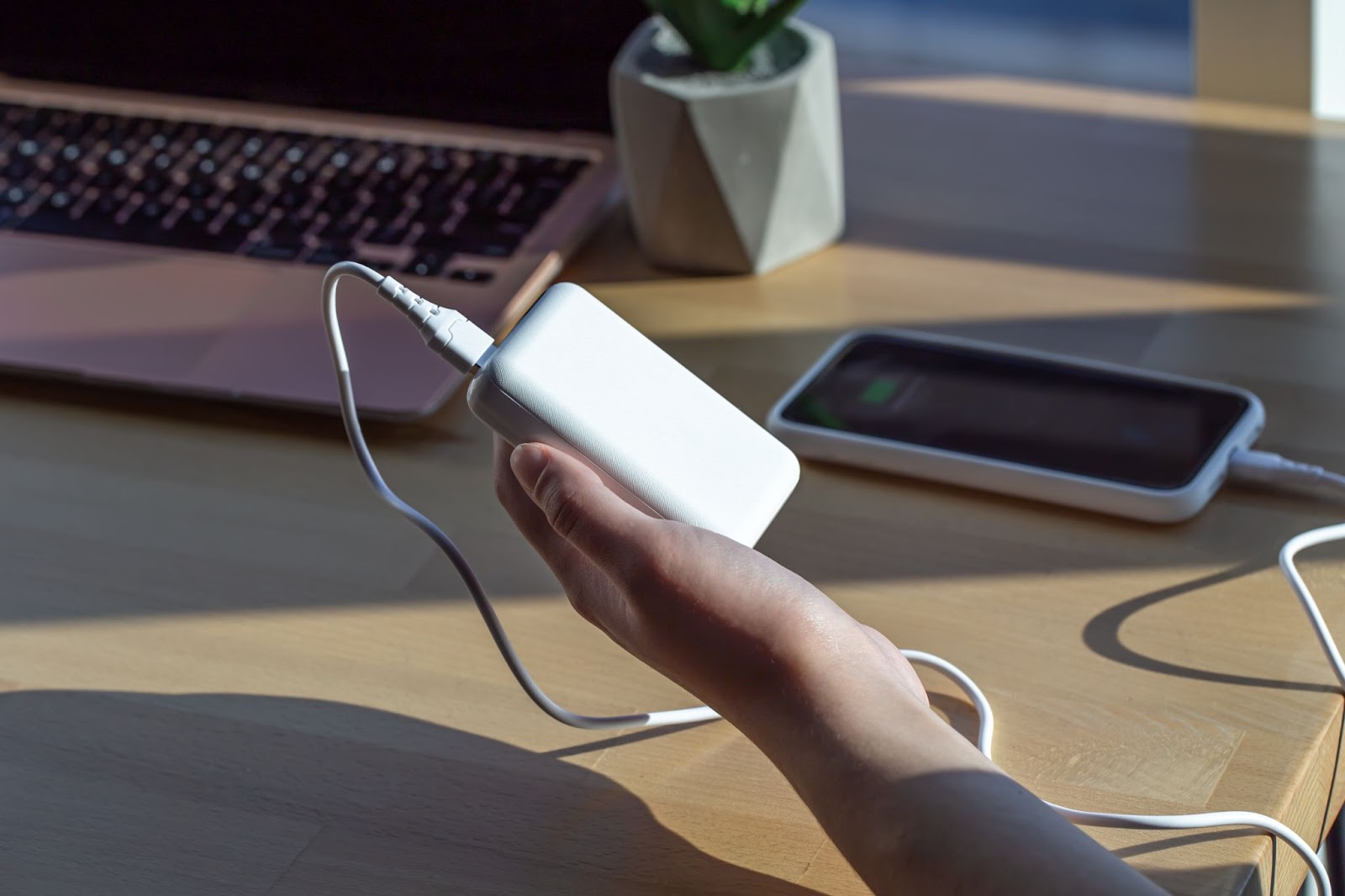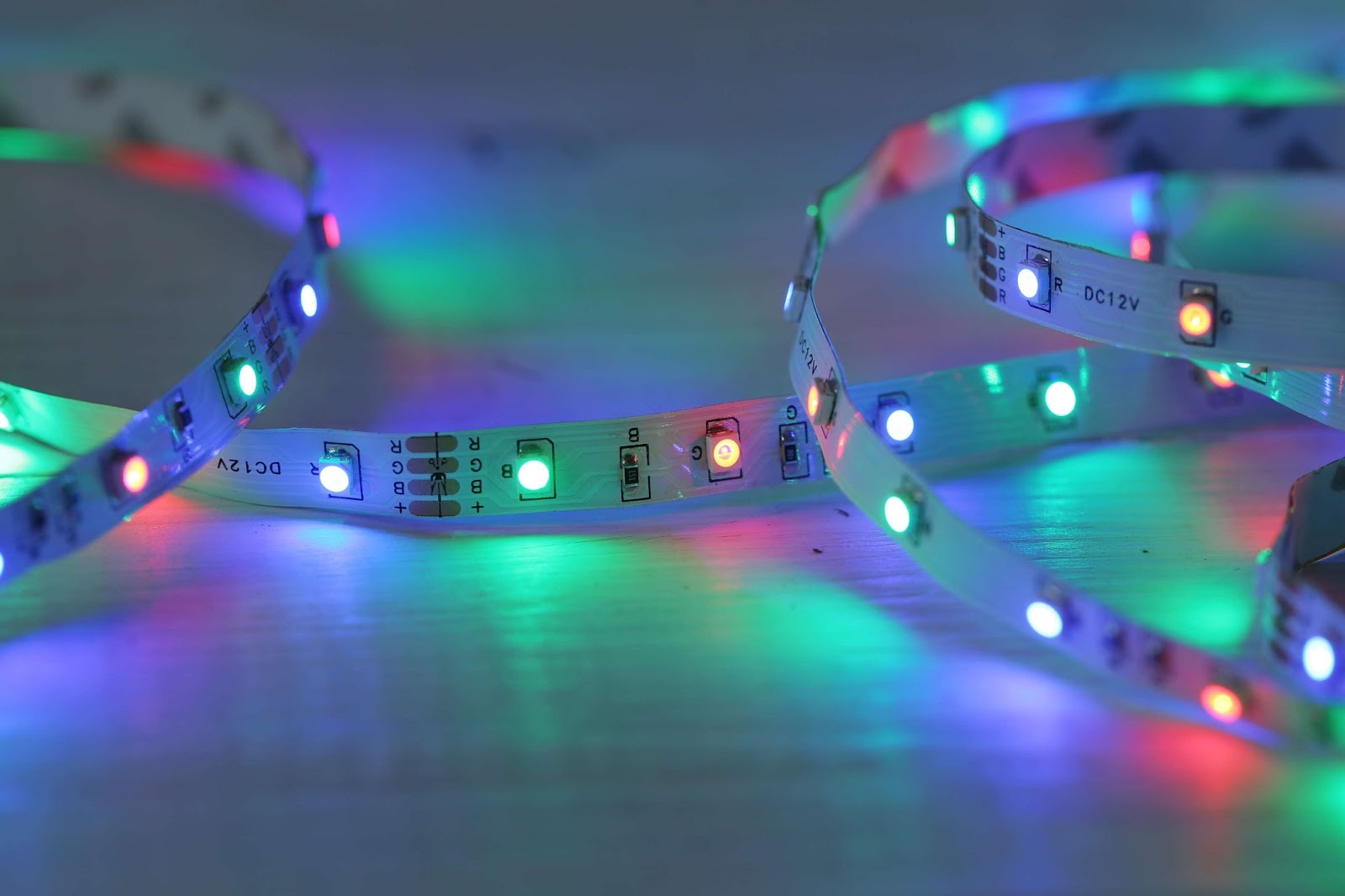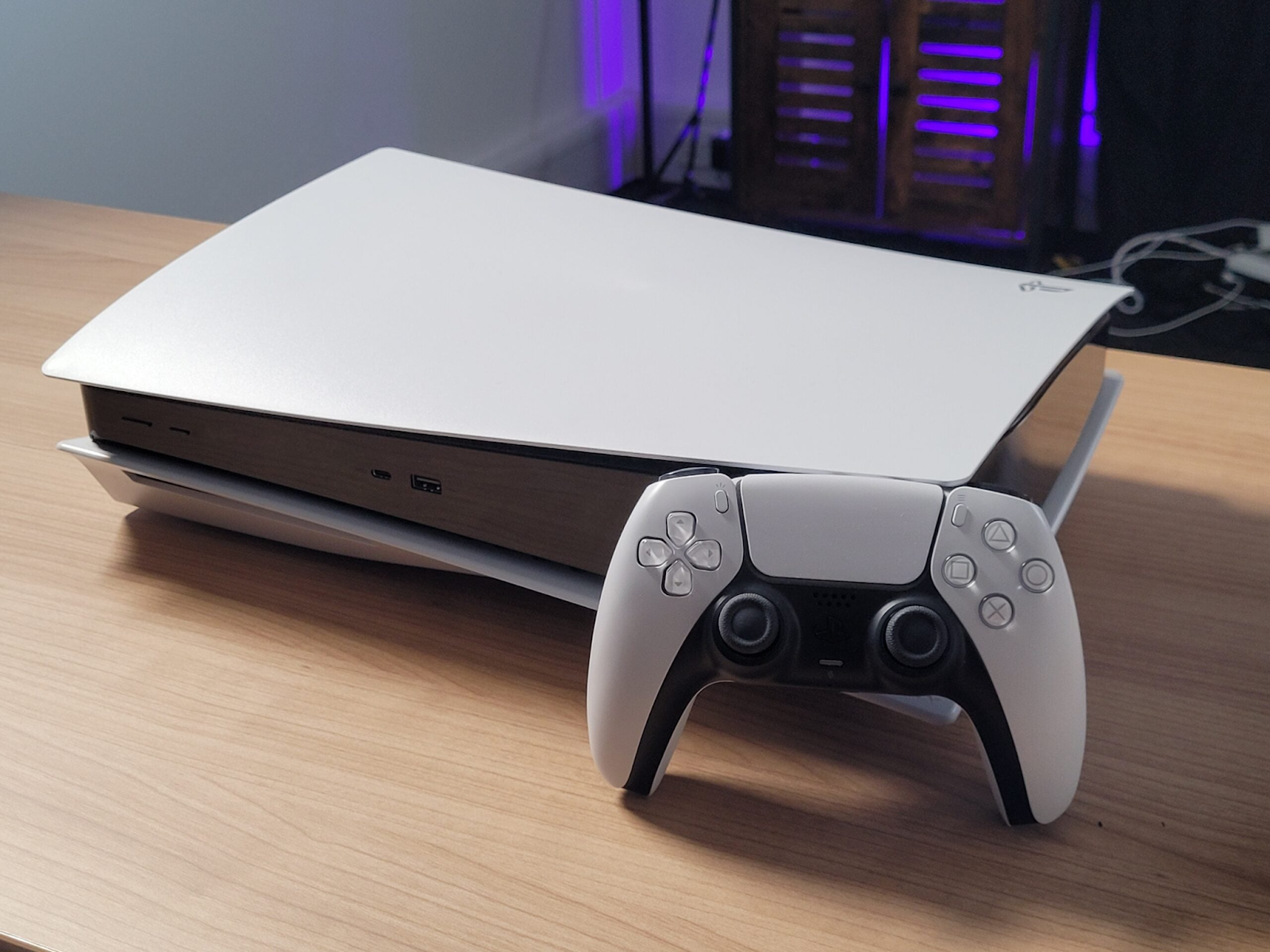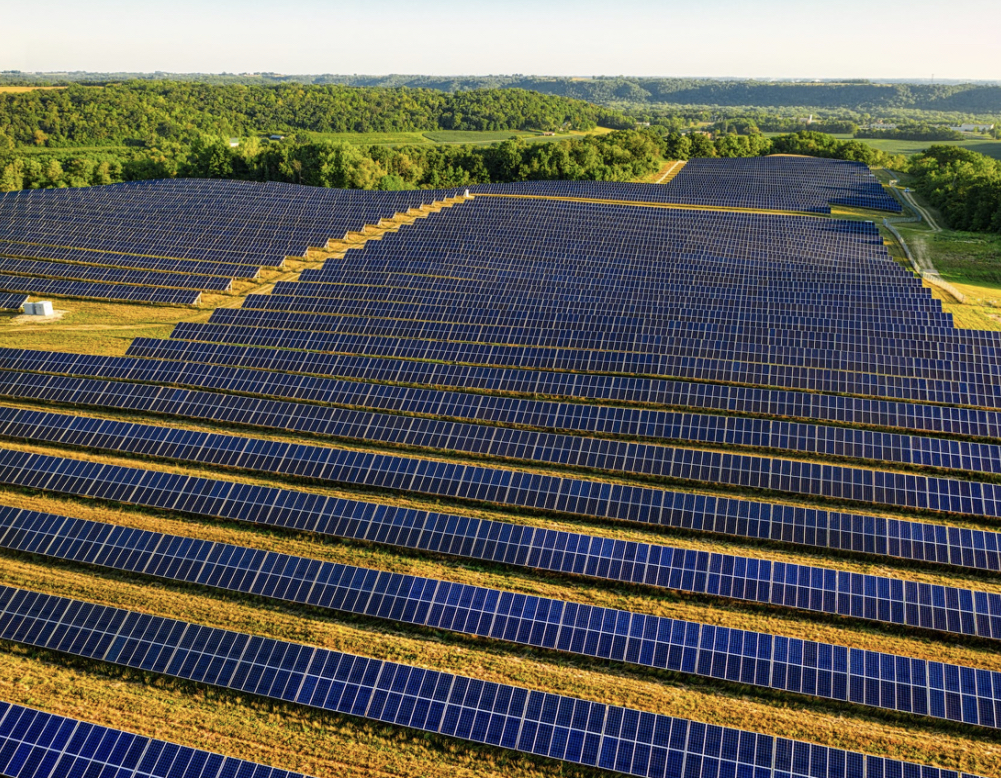Gaming PCs have become a staple in the world of technology, offering unparalleled performance for gamers and content creators alike. However, with great power comes great responsibility—power consumption, to be precise. We’ll explore the factors affecting power usage, the impact on electricity bills, and tips for optimizing power consumption without compromising performance.
Understanding Power Consumption in Gaming PCs
To comprehend how much power a gaming PC uses, we must first grasp the components responsible for energy consumption.
Central Processing Unit (CPU) Power Draw
The CPU acts as the brain of the gaming PC, executing complex calculations to run games and applications. Newer CPUs are designed to be more power-efficient, but high-performance processors can still draw a significant amount of power.
Graphics Processing Unit (GPU) Power Usage
The GPU is the powerhouse behind rendering stunning graphics in games. Gaming-oriented GPUs demand considerable power, especially during intense gaming sessions.
Random Access Memory (RAM) Energy Usage
While RAM’s power draw is relatively low compared to the CPU and GPU, it is essential for smooth multitasking and quick data access.
Storage Devices and Power Consumption
Different storage options, such as SSDs and HDDs, have varying power consumption levels. Understanding these differences helps optimize overall system power.
Factors Affecting Gaming PC Power Consumption
Several factors influence the power consumption of gaming PCs, making it essential to comprehend their effects.
Gaming Workload and Graphics Intensity
Resource-demanding games and applications can push the CPU and GPU to their limits, resulting in higher power consumption.
Overclocking and Voltage Settings
Enthusiasts often overclock their components to achieve better performance. However, this can significantly increase power usage and should be approached with caution.
PC Components and Efficiency Ratings
The power efficiency of individual components and their ratings can impact the overall energy consumption of a gaming PC.
The Impact on Electricity Bills
With the ever-increasing cost of electricity, understanding how gaming PC power usage affects monthly bills is crucial.
Average Energy Consumption of Gaming PCs
On average, a mid-range gaming PC consumes around 500 to 700 watts per hour during intense gaming sessions.
Calculating Electricity Costs
Using the local electricity rate, we can estimate the monthly cost of running a gaming PC for a certain number of hours per day.
Environmental Impact
Higher energy consumption not only leads to increased costs but also contributes to a larger carbon footprint. We explore ways to minimize this impact.
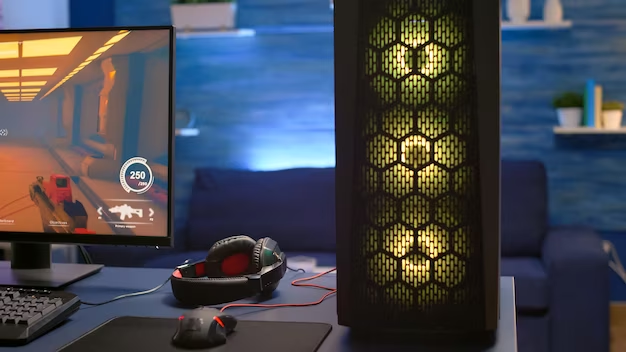
Tips for Optimizing Power Consumption
Reducing power consumption doesn’t mean sacrificing gaming performance. Here are some practical tips to strike the right balance.
Power Management Settings
Operating systems offer power management settings that can help regulate energy usage without compromising performance.
GPU and CPU Tuning
Tweaking GPU and CPU settings can improve energy efficiency while still delivering excellent gaming experiences.
Upgrade to Energy-Efficient Components
Investing in energy-efficient components with high efficiency ratings can lead to substantial long-term savings.
Power Consumption Comparison Table
To provide a clear overview, here’s a comparison table of power consumption for different PC configurations:
| PC Configuration | Power Consumption (Watts) |
|---|---|
| Entry-Level PC | 300 – 400 |
| Mid-Range Gaming PC | 500 – 700 |
| High-End Gaming PC | 700 – 1000 |
Energy-Efficient Gaming PC Builds
Building an energy-efficient gaming PC doesn’t mean compromising on performance. Here are some carefully crafted PC builds that strike the perfect balance between power and efficiency.
Budget-Friendly Energy-Efficient PC
- CPU: AMD Ryzen 5 3600 (65W TDP);
- GPU: NVIDIA GTX 1660 Super (125W TDP);
- RAM: 16GB DDR4 (Low Voltage);
- Storage: 500GB SSD;
- Power Supply: 80 Plus Bronze Certified (450W).
This budget-friendly build ensures a smooth gaming experience without breaking the bank or consuming excessive power.
Mid-Range Energy-Efficient Gaming PC
- CPU: Intel Core i5-11600K (125W TDP);
- GPU: AMD Radeon RX 6700 XT (230W TDP);
- RAM: 32GB DDR4 (Low Voltage);
- Storage: 1TB NVMe SSD;
- Power Supply: 80 Plus Gold Certified (600W).
The mid-range build offers excellent performance while maintaining reasonable power consumption.
High-End Energy-Efficient Gaming PC
- CPU: AMD Ryzen 9 5900X (105W TDP);
- GPU: NVIDIA RTX 3080 (320W TDP);
- RAM: 64GB DDR4 (Low Voltage);
- Storage: 2TB NVMe SSD;
- Power Supply: 80 Plus Platinum Certified (750W).
For enthusiasts seeking top-tier performance with reduced power draw, this high-end build is an ideal choice.
Best Practices for Eco-Friendly Gaming
Gamers can play their part in conserving energy and promoting environmental sustainability. Here are some eco-friendly gaming practices:
1. Power Down When Not in Use
Turn off your gaming PC and other peripherals when not in use to eliminate unnecessary power drain.
2. Choose Energy Star Certified Products
When upgrading or purchasing new gaming components, look for the Energy Star label to ensure higher energy efficiency.
3. Opt for Digital Downloads
Opt for digital game downloads instead of physical discs to reduce packaging waste and environmental impact.
4. Join Green Gaming Initiatives
Participate in gaming communities and organizations that promote green gaming practices and raise awareness.
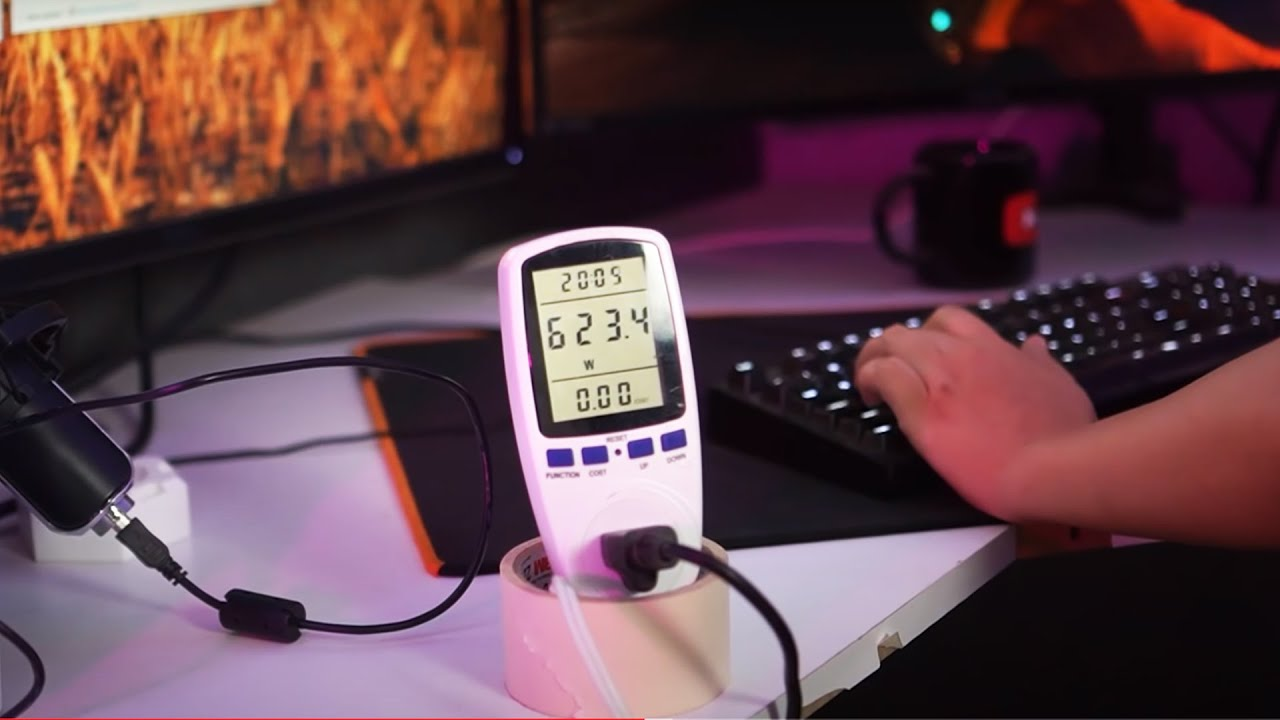
The Future of Energy-Efficient Gaming
Advancements in technology continue to pave the way for even more energy-efficient gaming experiences in the future.
More Power-Efficient Components
As manufacturers focus on sustainability and energy efficiency, we can expect future gaming components to be even more power-efficient without sacrificing performance.
AI-Driven Power Optimization
Artificial intelligence algorithms may play a significant role in dynamically optimizing power usage in gaming PCs, adapting to real-time workloads.
Energy-Efficient Gaming Laptops vs. Desktops
Gaming laptops and desktops offer distinct advantages, but how do they compare in terms of power consumption?
| Aspect | Gaming Laptops | Gaming Desktops |
|---|---|---|
| Power Consumption | Lower due to integrated components | Slightly higher due to desktop architecture |
| Upgradability | Limited or challenging to upgrade | Easier to upgrade and customize |
| Performance and Mobility | Portable and suitable for on-the-go gaming | Powerful and ideal for intense gaming sessions |
The Myth of the “Always-On” Gaming PC
Some gamers believe that leaving their gaming PC powered on all the time improves performance or reduces wear and tear. Let’s debunk this myth.
Power-On/Off Cycles
Modern gaming PCs are designed to handle power-on/off cycles without any detrimental effects. In fact, turning off the PC when not in use can save significant energy.
Sleep Mode vs. Shut Down
Using sleep mode during breaks between gaming sessions is a better alternative to leaving the PC on all the time. Sleep mode consumes less power while allowing quick resumption of activities.
The Impact of Cloud Gaming on Power Consumption
Cloud gaming services have gained popularity, but how do they impact power usage?
Reduced Local Hardware
Cloud gaming shifts the burden of rendering and processing to remote servers, potentially reducing the power consumption of local gaming PCs.
Server Farm Energy Consumption
On the flip side, cloud gaming relies on massive server farms, which have their own considerable energy requirements.
Energy-Efficient GPUs from Different Manufacturers
Graphics card manufacturers have been pushing the boundaries of energy efficiency. Let’s compare energy-efficient GPUs from various companies.
| Manufacturer | Energy-Efficient GPU Model | Power Consumption (Watts) |
|---|---|---|
| NVIDIA | GeForce RTX 3060 | 170 – 200 |
| AMD | Radeon RX 6600 XT | 160 – 180 |
| Intel | Intel Xe-HPG (upcoming) | Expected to be efficient |
Power-Saving Accessories for Gaming PCs
In addition to energy-efficient components, certain accessories can further help in reducing power consumption.
1. LED Lighting Control
RGB lighting adds flair to gaming setups but can also consume significant power. Invest in LED lighting control software or accessories that allow you to adjust brightness and patterns, minimizing unnecessary energy usage.
2. Power-Saving Monitors
Opt for monitors with energy-saving features, such as automatic sleep mode and ambient light sensors. These monitors adjust brightness and power usage based on the surrounding lighting conditions, conserving energy when not in use.
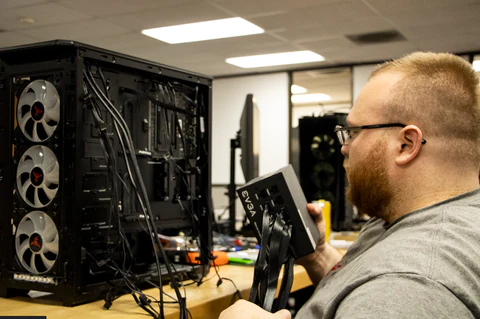
Renewable Energy Solutions for Gaming PCs
Embracing renewable energy solutions can make a substantial difference in the environmental impact of gaming PCs.
1. Solar Power for PC Setup
If possible, consider powering your gaming PC setup with solar energy. Installing solar panels can harness clean, renewable energy to offset the power consumption of your gaming rig.
2. Wind Energy Options
In regions with consistent wind patterns, wind energy solutions can also be explored as a sustainable power source for gaming PCs.
Energy-Efficient GPUs from Different Manufacturers
Graphics card manufacturers have been pushing the boundaries of energy efficiency. Let’s compare energy-efficient GPUs from various companies.
| Manufacturer | Energy-Efficient GPU Model | Power Consumption (Watts) |
|---|---|---|
| NVIDIA | GeForce RTX 3060 | 170 – 200 |
| AMD | Radeon RX 6600 XT | 160 – 180 |
| Intel | Intel Xe-HPG (upcoming) | Expected to be efficient |
Conclusion
In conclusion, understanding the power consumption of a gaming PC is vital for both budget-conscious gamers and environmentally-conscious individuals. By adopting smart practices and optimizing component settings, one can strike the perfect balance between performance and energy efficiency. Embracing energy-efficient components and responsible usage not only benefits our wallets but also helps preserve our planet for future generations.



